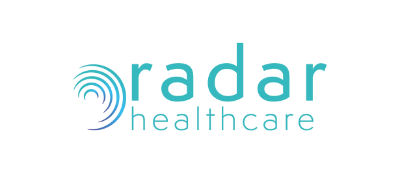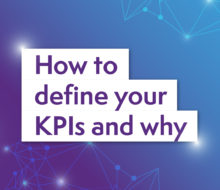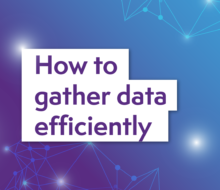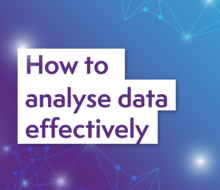How to report on your data
31 May 2022
Tags:
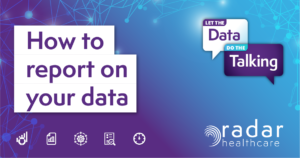 How would you like to demonstrate cost-saving measures as well as staff and patient satisfaction? With Radar Healthcare’s analytics module, you can do just that, highlighting business improvements and providing you and your teams with all the data they need in one place to improve patient outcomes.
How would you like to demonstrate cost-saving measures as well as staff and patient satisfaction? With Radar Healthcare’s analytics module, you can do just that, highlighting business improvements and providing you and your teams with all the data they need in one place to improve patient outcomes.
Data is only useful if the people who are looking at it can understand it. That’s why it’s so important that the teams who need the data, have the necessary context or knowledge on the subject to avoid wasted time. Using the analytics dashboard in Radar Healthcare can show your audiences the data they need to know in a meaningful way.
Analytics and best practices
Tracking the location, prevalence and seriousness of incidents and events can help to mitigate healthcare errors. Using digital reporting tools like Radar Healthcare not only saves time when tracking what’s happened, but also offers a platform to highlight and turn those routine procedures into best practices.
Our dashboards and reporting tools offer instant oversight, allowing you to drill down to a specific location, neighbourhood, or organisation to share learnings across the board, and it’s this data which will help the future of patient safety.
Creating a strong data culture
Sometimes the true value of data in a healthcare organisation can be forgotten when the focus is on moving from manual processes to digital solutions and the cloud for data collection and sharing. However, it’s important to remember the importance of “data culture” and how this can help your organisation make positive steps to deliver better patient care. Watkins breaks data culture down into three key aspects: the value people within the organisation place on data, literacy around analytics within the organisation, and how well analytics reaches across the organisation.
The benefit of adopting Radar Healthcare is that your teams don’t need to have strong analytics experience or the expertise to read and interpret data, because that data is already available – present and correct – in the reporting dashboard, allowing you to develop effective data strategies.
“One of the great things about the Builder Licence – and it sounds trivial – but it’s when you build the boards, and you can add a text widget that allows us to put context to the dashboards. This way, the people who aren’t analysts can look at these graphs and we can save them time by explaining what they mean, and it also gives them confidence in the data as well.”

Knowing your audience
Displaying your data in a digestible format can mean the difference between losing and engaging your stakeholders, as well as developing a solid foundation of trust. Whether you’re in the boardroom or on the ward, it is important to consider who needs access to the data and how you can demonstrate its value.
For example, the teams in charge of data collection, may not be the same as those in charge of data analysis and interpretation, so it’s critical to demonstrate the true value throughout the organisation in order to develop a strong data culture.
With Radar Healthcare’s Analytics Builder, your teams can select widgets and graphics that not only show data in a standardised way, but also serve to tell the narrative of what’s going on in your organisation, whether it’s infection control, employee retention or care delivery.
Through Radar Healthcare, Four Seasons Health Care Group have become extremely focused on exactly what information they need and have set up specific dashboards relating to this which has streamlined their reporting. Using the tools available in Radar Healthcare, James Robson, Change Delivery Director at Four Seasons Health Care Group, and his team created dashboards that suited their nationwide business and reports that drill down into the finest details of their individual homes. Overall, they were able to make a product that served their whole organisation with the opportunity to develop the system as the needs of the organisation grew.
Putting KPIs at the heart of your decision-making
When you have so much data at your fingertips, it’s easy to lose sight of your end goal. Radar Healthcare’s Pulse tool can help with this by keeping track of your KPIs and objectives and alerting you and your team when levels exceed or fall below a predetermined threshold.
Using our standard notifications and tracking features, as well as creating goals based on existing datasets and monitoring them through your custom analytics dashboard, provides a holistic experience while working with Radar Healthcare.
For more information on how we can help you elevate your data to the next level, contact us for a consultation.
